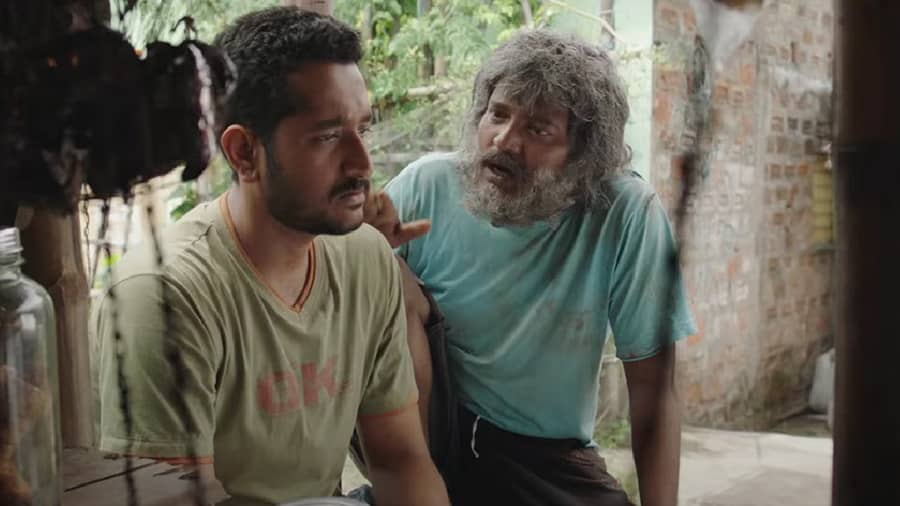There is a scene in Subir Mondal’s Ajker Shortcut where one of the characters tells a young, aspiring filmmaker that anyone with a camera can become a movie maker these days. The days of Satyajit Ray are gone, and filmmaking has a new syntax. He advises them to capture the various moods of the city, add some music, edit the footage with any free online software, and voila, their film will be made.
The words ring true for Subir Mondal, who has directed this film. Based on a story written by singer-songwriter Nachiketa Chakraborty, the director’s lack of clarity and vision lets Ajker Shortcut down. In his story, written two decades ago, Nachiketa had highlighted the burning issue of unemployment, and how the young generation was affected by it. Lack of jobs is a problem that still haunts the nation, thus making the subject relevant.
Such a promising premise fails to attain fruition solely due to confused storytelling and muddled execution. Ajker Shortcut narrates the story of two individuals, Bishu (played by Parambrata Chattopadhyay) and Abesh (played by Gaurav Chakrabarty). Bishu is a slumdog, without a steady source of income. Sharing living quarters with his elder sister and mother, he is ready to go to any lengths to make a living. But he has his heart in the right place. While distributing pamphlets on the streets, Bishu witnesses a road accident (read suicide attempt). As most onlookers flee the scene, including Abesh, Bishu not only takes the man to a hospital and pays for his treatment from his own pocket, he stays on till his last rites are carried out.
On the other end of the spectrum is Abesh, a budding poet born with a silver spoon in his mouth. He is also unemployed, but that is the least of his worries. Finding the right-sounding rhyming word for his couplets perturbs him more. The contrast is well established in the beginning of the film. However, the narrative digresses from here on and focuses on Nargis (Apu Biswas), who is visiting Kolkata from Dhaka with her mother, for medical reasons. After piquing the audience’s interest with a solid opening, the story goes downhill as it concentrates on Abesh and his neighbour as they try to woo Nargis.
Mondal tries to bite more than he can chew. He fits in too many subplots in a short span of time. That ails the pace of the film. He shifts away from the core message of the movie — young people burdened by unemployment, looking for shortcuts. The narrative comes back on track in the second half. But by the time Mondal settles down and returns to the subject, we have lost interest.
The saving grace, perhaps, for this film are the actors. Parambrata Chattopadhyay and Gaurav Chakrabarty are both seasoned actors — last seen together in Srijit Mukherji’s Dwitiyo Purush. While both play their parts to the T, there is nothing to write home about Bishu or Abesh.
Similarly, Sankar Debnath has been wasted as the metaphorical demented slum-dweller who breaks into a Rabindrasangeet at every chance he gets. His character represents a certain section of intellectuals in our society who have become self-serving and are silent on the wrongdoings under their watch. The rest of the supporting cast is either forgettable or too predictable.
One of the many problems with this film is the dubbing, which is jarring to the ear. The tonality of the artists who lent their voices to Anindita Bose and Rajashree Bhowmik didn’t match the characters they were dubbing for. The background score, too, is out of place at times.
The character I mentioned in the beginning also advises the young filmmaker to upload his work online. That would get him more views than a theatrical screening, he says. Movie theatres should instead be used as indoor playgrounds for children or godowns for potatoes. That’s more profitable, he quips. As I watched Ajker Shortcut in an almost empty auditorium, I had similar thoughts. Subir Mondal could’ve gone the digital way with the release of his movie.











